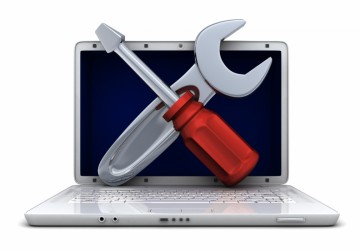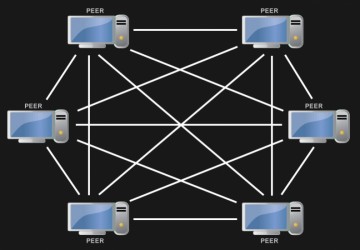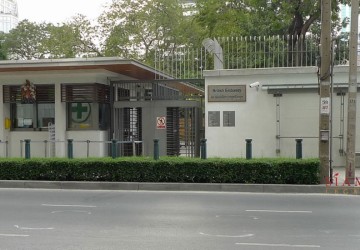
Recovery from drug addiction is possible.
Dealing with a partner who has a drug addiction can be challenging, but there are steps you can take to support them and encourage them to seek help. Here are some suggestions:
-
Educate Yourself:
- Learn about the specific drug or substance your partner is addicted to, as well as the nature of addiction. Understanding the challenges and consequences of addiction can help you approach the situation more compassionately.
-
Express Concerns with Empathy:
- Approach your partner with empathy and express your concerns about their well-being. Use "I" statements to avoid sounding accusatory, focusing on your feelings and observations rather than placing blame.
-
Encourage Open Communication:
- Create a safe and non-judgmental space for your partner to talk about their struggles. Encourage open communication, and be willing to listen without immediate judgment.
-
Avoid Enabling Behaviors:
- While it's important to be supportive, avoid enabling your partner's addiction. This means not participating in or facilitating their substance use and setting clear boundaries to protect your well-being.
-
Explore Treatment Options:
- Research and discuss treatment options together. This could include inpatient or outpatient rehabilitation programs, counseling, therapy, or support groups. Be prepared to offer assistance in finding appropriate resources.
-
Stage an Intervention (if necessary):
- If your partner is resistant to seeking help, you may consider staging an intervention with the help of a professional interventionist. This involves a structured, planned meeting where loved ones express their concerns and encourage the person to seek treatment.
-
Set Healthy Boundaries:
- Establish and communicate clear boundaries to protect yourself emotionally and physically. These boundaries may involve consequences for continued substance abuse, such as limiting contact or seeking support from friends and family.
-
Take Care of Yourself:
- Dealing with a partner's addiction can be emotionally draining. Make sure to prioritize your own well-being by seeking support from friends, family, or a counselor. Consider joining a support group for loved ones of individuals with addiction.
-
Encourage Professional Help:
- Encourage your partner to seek professional help, such as a therapist or counselor specializing in addiction. Professional guidance can be crucial in addressing the underlying issues contributing to the addiction.
-
Be Prepared for Resistance:
- Understand that your partner may resist the idea of getting help initially. Addiction often comes with denial and defensiveness. Stay patient, persistent, and consistent in your support.
Remember that addiction is a complex issue, and recovery is a process that may involve setbacks. It's important to approach the situation with empathy, but also to prioritize your own well-being and set boundaries. Encourage your partner to seek professional help, as overcoming addiction often requires professional intervention and support.
Thai Language:
การจัดการกับคนรักที่ติดยาอาจเป็นเรื่องท้าทาย แต่มีขั้นตอนต่างๆ ที่คุณสามารถทำได้เพื่อสนับสนุนพวกเขาและสนับสนุนให้พวกเขาขอความช่วยเหลือ นี่คือข้อเสนอแนะบางส่วน:
ให้ความรู้แก่ตัวเอง:
เรียนรู้เกี่ยวกับยาหรือสารเฉพาะที่คนรักของคุณเสพติด รวมถึงธรรมชาติของการเสพติด การเข้าใจความท้าทายและผลที่ตามมาจากการเสพติดสามารถช่วยให้คุณรับมือกับสถานการณ์ได้อย่างมีความเห็นอกเห็นใจมากขึ้น
แสดงความกังวลเกี่ยวกับความเห็นอกเห็นใจ:
เข้าหาคนรักของคุณด้วยความเห็นอกเห็นใจและแสดงความกังวลเกี่ยวกับความเป็นอยู่ที่ดีของพวกเขา ใช้คำพูดที่ขึ้นต้นด้วยคำว่า "ฉัน" เพื่อหลีกเลี่ยงการกล่าวหา โดยเน้นที่ความรู้สึกและการสังเกตของคุณแทนที่จะกล่าวโทษ
ส่งเสริมการสื่อสารแบบเปิด:
สร้างพื้นที่ที่ปลอดภัยและไม่มีการตัดสินสำหรับคู่ของคุณเพื่อพูดคุยเกี่ยวกับการต่อสู้ดิ้นรนของพวกเขา ส่งเสริมการสื่อสารที่เปิดกว้าง และเต็มใจรับฟังโดยไม่ต้องตัดสินทันที
หลีกเลี่ยงพฤติกรรมการเปิดใช้งาน:
แม้ว่าการสนับสนุนจะเป็นสิ่งสำคัญแต่อย่าทำให้คู่ของคุณเสพติด นี่หมายถึงการไม่มีส่วนร่วมหรืออำนวยความสะดวกในการใช้สารเสพติดและกำหนดขอบเขตที่ชัดเจนในการปกป้องความเป็นอยู่ของคุณ
สำรวจตัวเลือกการรักษา:
ค้นคว้าและหารือเกี่ยวกับทางเลือกในการรักษาร่วมกัน ซึ่งอาจรวมถึงโปรแกรมการฟื้นฟูผู้ป่วยในหรือผู้ป่วยนอก การให้คำปรึกษา การบำบัด หรือกลุ่มสนับสนุน เตรียมให้ความช่วยเหลือในการหาทรัพยากรที่เหมาะสม
ดำเนินการแทรกแซง (หากจำเป็น):
หากคนรักของคุณต่อต้านการขอความช่วยเหลือ คุณอาจพิจารณาจัดเตรียมการแทรกแซงโดยได้รับความช่วยเหลือจากผู้เข้ามาแทรกแซงมืออาชีพ สิ่งนี้เกี่ยวข้องกับการประชุมที่มีโครงสร้างและวางแผนไว้ซึ่งผู้เป็นที่รักแสดงความกังวลและสนับสนุนให้บุคคลนั้นเข้ารับการรักษา
กำหนดขอบเขตที่ดี:
สร้างและสื่อสารขอบเขตที่ชัดเจนเพื่อปกป้องตนเองทั้งทางอารมณ์และร่างกาย ขอบเขตเหล่านี้อาจเกี่ยวข้องกับผลที่ตามมาของการใช้สารเสพติดอย่างต่อเนื่อง เช่น การจำกัดการติดต่อหรือการขอความช่วยเหลือจากเพื่อนและครอบครัว
ดูแลตัวเองด้วยนะ:
การจัดการกับการเสพติดของคนรักอาจทำให้อารมณ์เสียได้ อย่าลืมจัดลำดับความสำคัญความเป็นอยู่ของตัวเองด้วยการขอการสนับสนุนจากเพื่อน ครอบครัว หรือที่ปรึกษา ลองเข้าร่วมกลุ่มสนับสนุนเพื่อคนที่คุณรักของผู้ติดยาเสพติด
สนับสนุนความช่วยเหลือจากผู้เชี่ยวชาญ:
ส่งเสริมให้คู่ของคุณขอความช่วยเหลือจากผู้เชี่ยวชาญ เช่น นักบำบัดหรือที่ปรึกษาที่เชี่ยวชาญเรื่องการเสพติด คำแนะนำจากผู้เชี่ยวชาญมีความสำคัญอย่างยิ่งในการแก้ไขปัญหาเบื้องหลังที่ทำให้เกิดการเสพติด
เตรียมพร้อมสำหรับการต่อต้าน:
เข้าใจว่าคู่ของคุณอาจต่อต้านความคิดในการขอความช่วยเหลือตั้งแต่แรก การเสพติดมักมาพร้อมกับการปฏิเสธและการป้องกันตัว อดทน ยืนหยัด และสม่ำเสมอในการสนับสนุนของคุณ
โปรดจำไว้ว่าการเสพติดเป็นปัญหาที่ซับซ้อน และการฟื้นตัวเป็นกระบวนการที่อาจเกี่ยวข้องกับความล้มเหลว สิ่งสำคัญคือต้องรับมือกับสถานการณ์ด้วยความเห็นอกเห็นใจ แต่ยังต้องจัดลำดับความสำคัญความเป็นอยู่ที่ดีและกำหนดขอบเขตด้วย สนับสนุนให้คู่ของคุณขอความช่วยเหลือจากผู้เชี่ยวชาญ เนื่องจากการเอาชนะการเสพติดมักต้องมีการแทรกแซงและการสนับสนุนจากมืออาชีพ
-
 07/03/2024 315
07/03/2024 315 -
 07/03/2024 369
07/03/2024 369 -
 07/03/2024 415
07/03/2024 415 -
 06/16/2024 405
06/16/2024 405 -
 06/16/2024 370
06/16/2024 370
-
 06/10/2017 5455
06/10/2017 5455 -
 06/19/2017 4127
06/19/2017 4127 -
 10/07/2017 4084
10/07/2017 4084 -
 06/10/2017 3981
06/10/2017 3981 -
 06/28/2017 3612
06/28/2017 3612
FEATURED NEWS

GENERAL

GENERAL

GENERAL

GENERAL




LEAVE A COMMENT